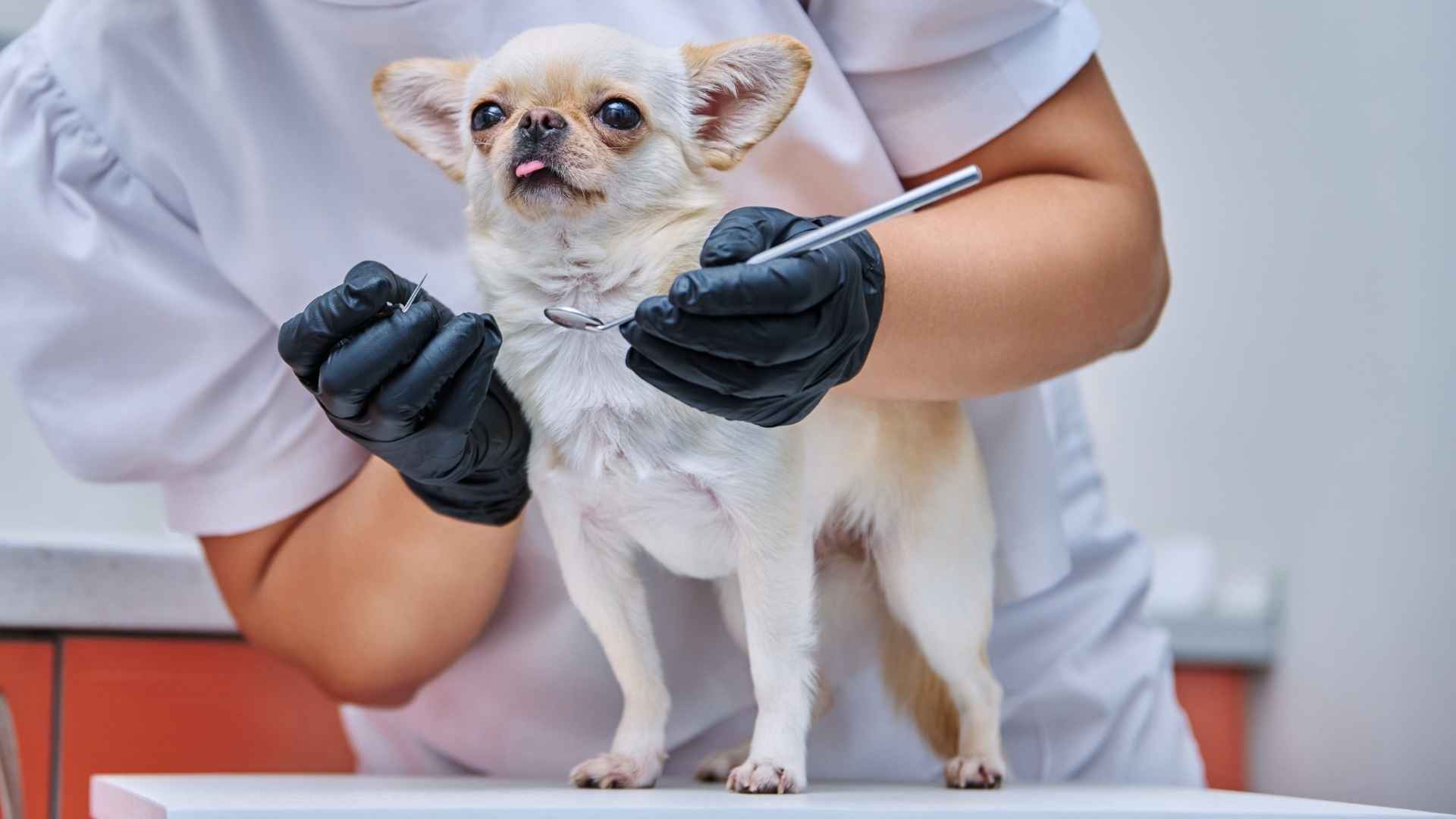We all love our dogs, their happy eyes, wagging tails, and silly smiles. But what if there might be a painful secret behind that cute smile? The bad breath is not all about being smelly, it is a sign that your dog might be having a dental issue. What’s even worse? It might force you to take a step back from your dog.
Here is an astonishing fact revealed by the American Veterinary Medical Association: Over 80% of dogs have dental disease by the age of 3. This shows that most dogs have dental issues, and dental disease is a serious business. Dental disease not only affects teeth and gums, but it can also cause infections and ultimately organ failure.
Dental problems are common in dogs, but there are some dog breeds most prone to dental diseases. Therefore, in this blog, we will explore 7 dog breeds that are at a higher risk of developing periodontal disease.
Dog Breeds Most Prone To Dental Disease
1. Yorkshire Terrier
The small Yorkshire Terrier, also referred to as “Yorkie,” is a swift and entertaining partner. According to the Yorkshire Terrier Club of America, in the mid-1800s, Scottish weavers used Yorkies to chase rodents in textile mills. Later, they became popular as lapdogs. However, their tiny mouths can cause significant periodontal challenges for Yorkie teeth.
Dental Disease
These dogs have compact skulls, so they often experience tooth crowding. Moreover, plaque and tartar accumulate along the gum line, resulting in redness, swelling, and even bleeding. Further, their delicate baby teeth are prone to falling out at an earlier stage.
Best Practices for Improving Dogs’ Dental Health
Daily brush dogs’ teeth as it is an effective way to prevent plaque and tartar buildup. Furthermore, encourage chewing with dental toys, as they promote oral hygiene. Moreover, you must schedule professional cleaning after regular intervals.
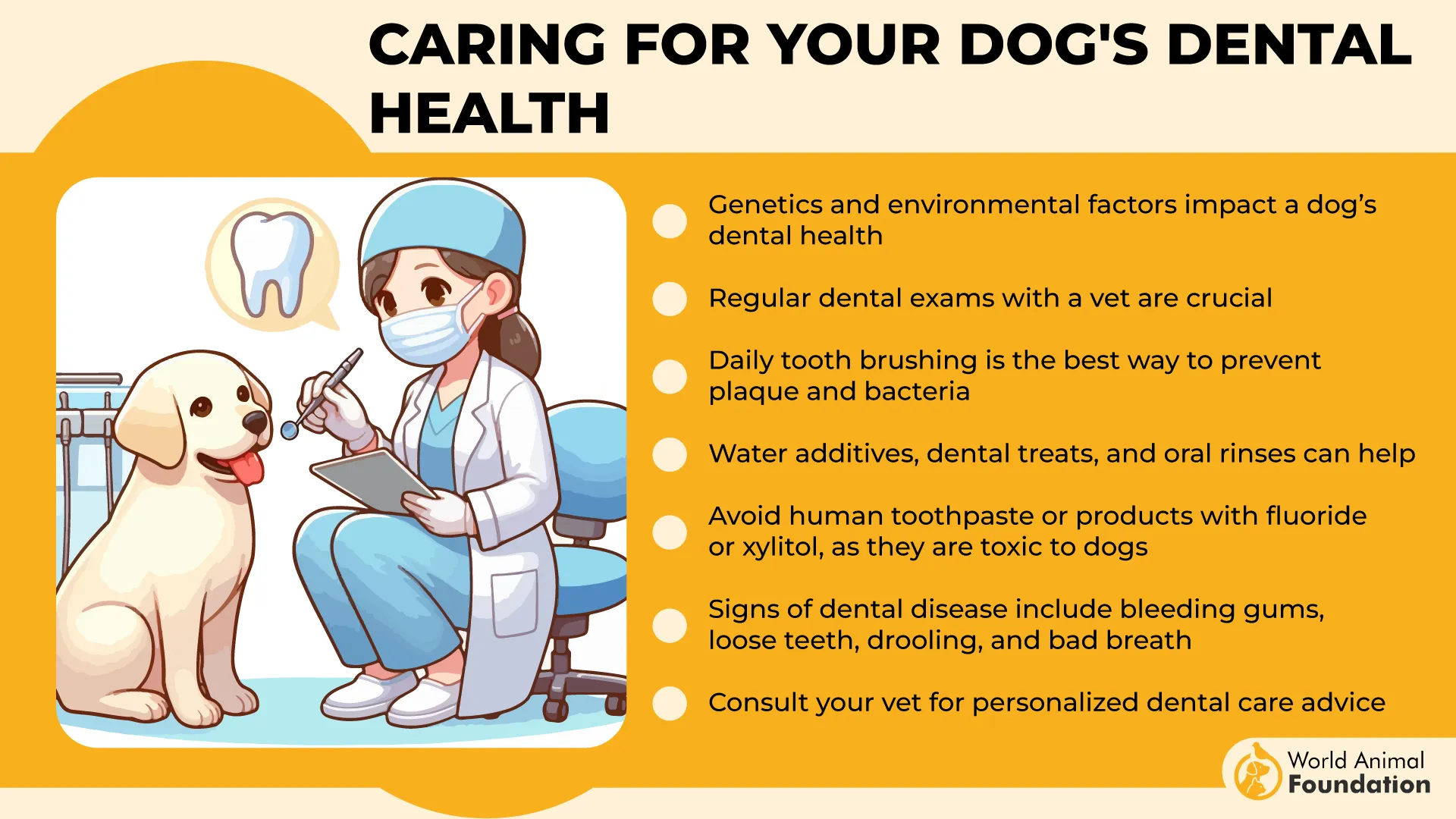
What to feed
It is advised to feed kibble or wet dog food approved by the Association of American Feed Control Officials (AAFCO). Kibble or wet dog food provides a complete and balanced diet.
2. Chihuahua
Chihuahuas are more susceptible to periodontal disease as their mouth is small and long lifespan. It is not that their teeth are bad, but the structure of the mouth is favorable to plaque and tartar buildup. So if not removed, it can lead to gum disease and infections.
Risk of Tooth Problems
If your chihuahua’s dental issues aren’t treated, they can lead to dental problems that might be life-threatening. Bacteria related to plaque, tartar, and gingivitis can get into a pup’s bones and damage tissues. Dental problems can damage the kidneys, liver, or even cause heart disease.
At-Home Teeth Cleaning
Daily tooth brushing is very important for preventing periodontal diseases. You can use a dog toothbrush and toothpaste formulated specially for dogs. Never use human toothpaste. If you are brushing with your fingers, do wear gloves.
Professional Dental Cleanings
It is good to consult a veterinary dentist for professional dental cleaning. Professional vets do scaling of the teeth, polish teeth, and do gum and teeth checkups. They also have many other treatment options to cure the disease.
3. Pomeranian
Pomeranian is a small dog well-known toy breed that originated from the Spitz Family. Don’t get fooled by their small size, they have bold and confident personalities. Moreover, they are adorable due to their size and fluffy double coat. Due to their size and physical characteristics, they are vulnerable to certain health issues, particularly developing gum disease.
Baby Teeth That Do Not Fall Out
Pomeranians develop dental problems in their early life. Many times, dogs’ teeth don’t fall naturally, so it prevents permanent teeth from coming out. Therefore, you must visit the veterinarian to remove those teeth.
Double Denture
Double denture is also a common dental disease that develops in these dogs. When dog owners don’t remove baby teeth, permanent teeth grow in front of or behind these teeth. As a result, plaque buildup between those two teeth causes inflammation in the gums.
Bad Breath
Your Pomeranians are cute until they come with stinky breath. Stinky breath signals any periodontal disease; therefore need to figure out the cause and consult a vet.
4. Dachshund

Dachshund is famously known as “hot dog” or “wiener dog.” Moreover, they have a long silhouette with short and muscular legs. PetMD states that they have a brave and energetic personality and are always on the lookout. These dogs also have dental problems and gum disease. The shape of their mouth puts them at risk of periodontal diseases.
Dachshunds Teeth
These dogs are also born without teeth, like other dog breeds. Their milk teeth are also called “deciduous teeth” as they usually come in at 3 weeks. Their tooth structure is not simple, and it is anchored into its socket in the jaw.
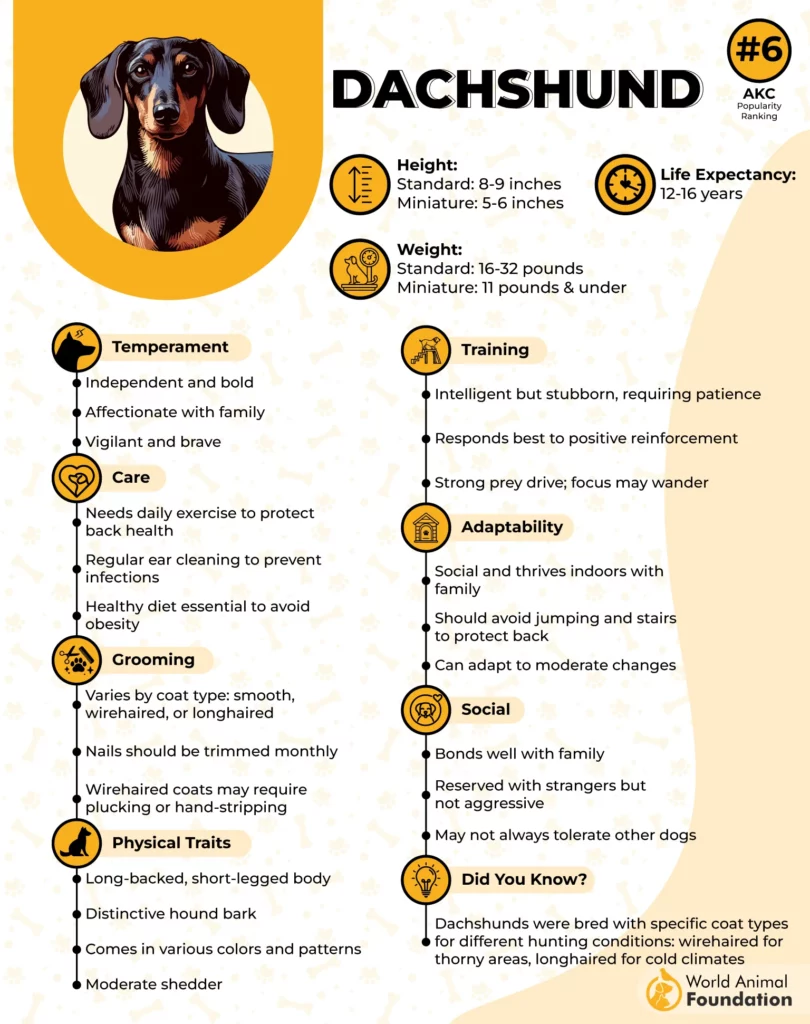
Signs of Dental Problems
Whenever this dog breed has gum disease or periodontal disease, certain symptoms will be prominent. There will be red or swollen gums, and the dog will have difficulty chewing or eating. The dog’s teeth will be falling out with stinky breath.
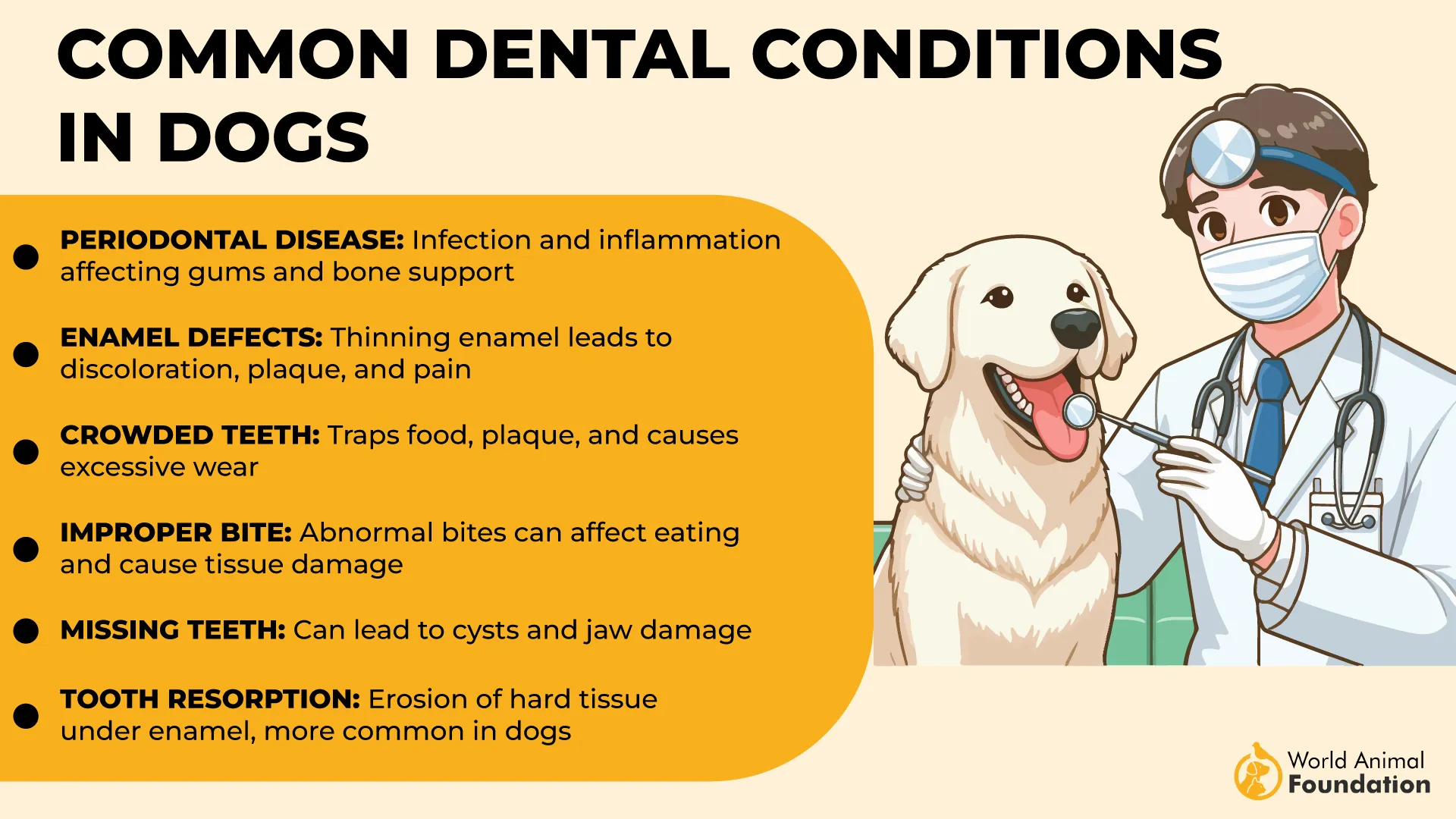
Breed-Specific Care Tips
For a healthy mouth, daily tooth brushing is necessary. Make sure tooth toothpaste is pet-friendly. Moreover, regularly check the dog’s teeth, and the first focus must be the upper jaw.
5. Shih Tzus
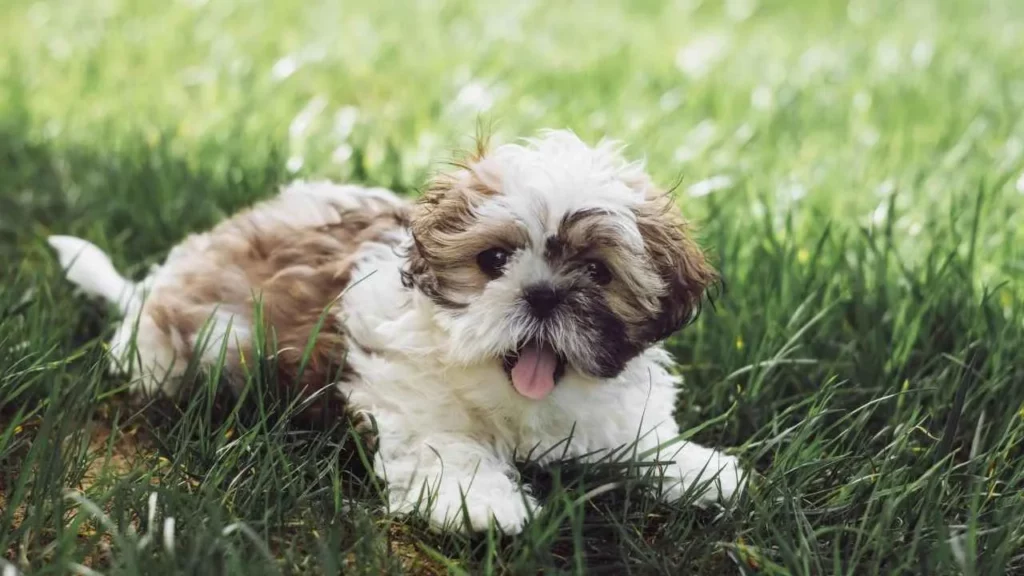
Shih Tzu is a Tibetan breed, whose history goes back centuries. This pet is truly a furry companion. According to the Shih Tzu Club, this breed is associated with Buddhism and bred to look like lions. They have small mouths; therefore, they suffer dental disease. They have as many teeth as big dogs have.
Crowded Teeth
Even though they have a small mouth, they still have 42 teeth. As the dog grows up, the crowding of 42 teeth in a small mouth causes the teeth to rotate. Therefore causes various problems and infections.
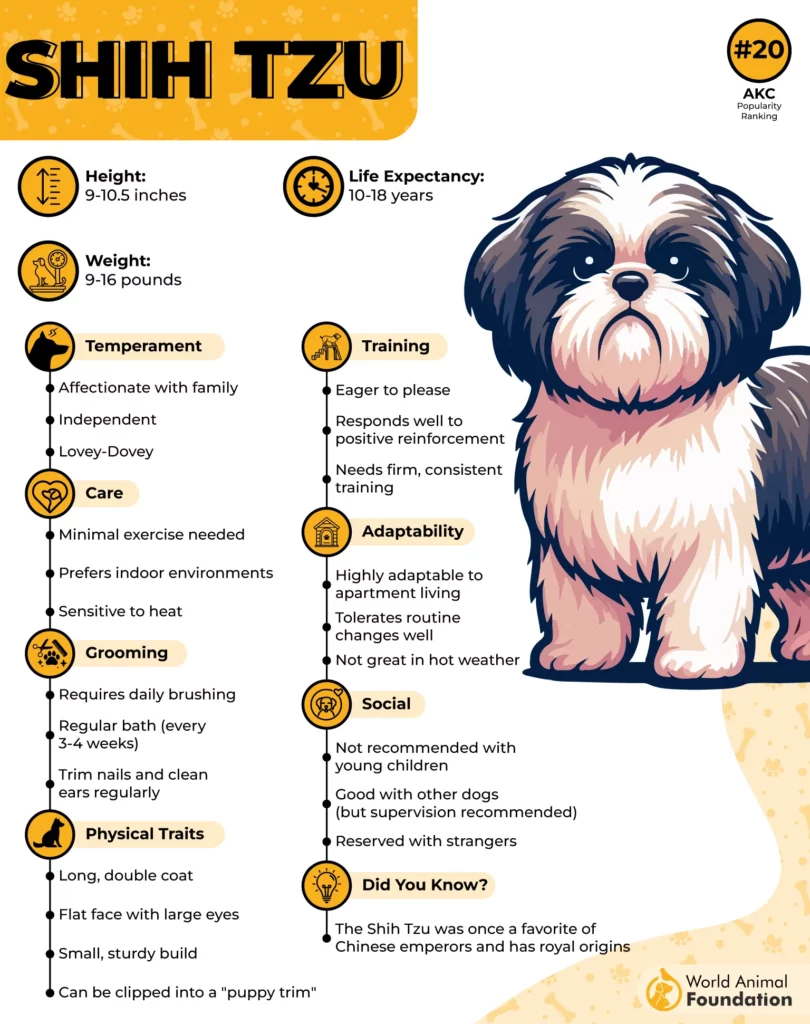
Delayed Tooth Eruption
These pets have an issue of delayed tooth eruption. It is a condition where their tooth don’t erupt from the gums. This results in tooth fractures.
6. Maltese

The Maltese is a small dog breed that’s popular due to its luxurious, floor-length white coat. Moreover, they have a playful personality. This small breed originated from Malta and is a loyal companion. If you are thinking of welcoming this breed, you must be aware of its health issues. This dog suffers from dental problems.
How Periodontal Disease Begins
When Maltese eats food, plaque builds up on the teeth. It gets hard, and tartar builds up. If the tartar is not removed, the gums become inflamed, and this condition is called gingivitis.
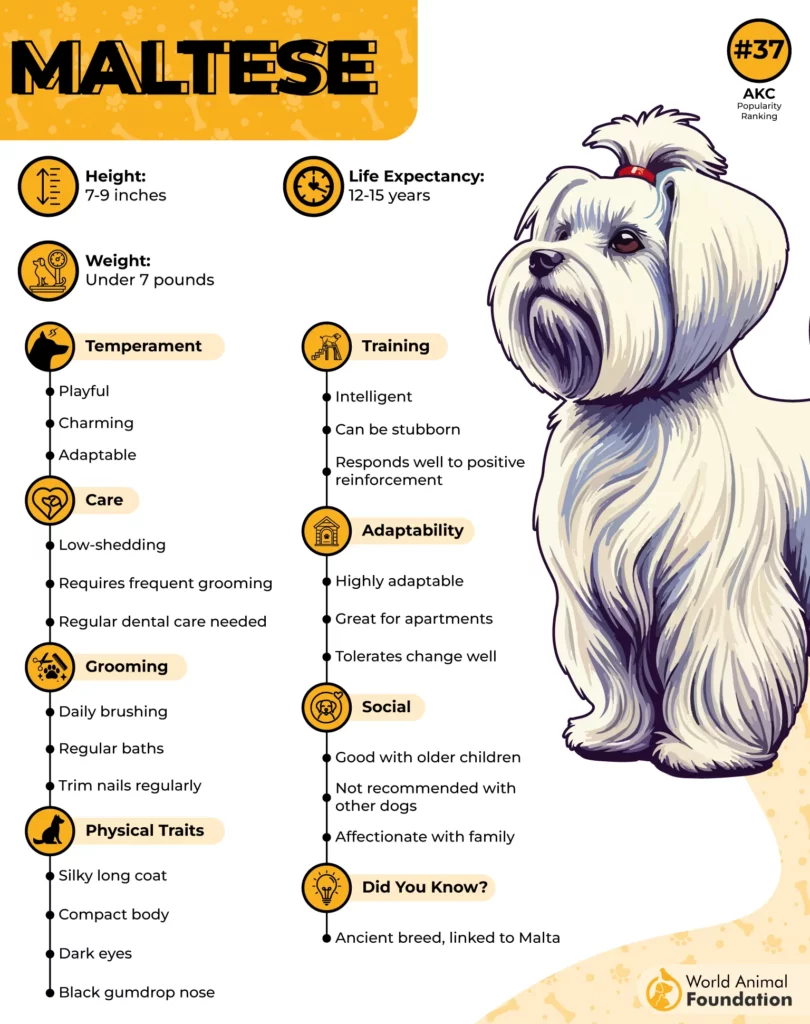
Treatment
Usually, these conditions are treatable, but you need to take your Maltese for a checkup. A veterinary dentist offers different dental procedures, from tartar removal to root canals. Moreover, restorative dentistry is also becoming a common procedure.
Preventing Problems
Pet owners must teach proper techniques for brushing and brushing their teeth regularly. They must begin teaching when the dog is a puppy. Puppies openly learn new experiences, therefore, they are more likely to accept brushing than older dogs.
7. Italian Greyhound
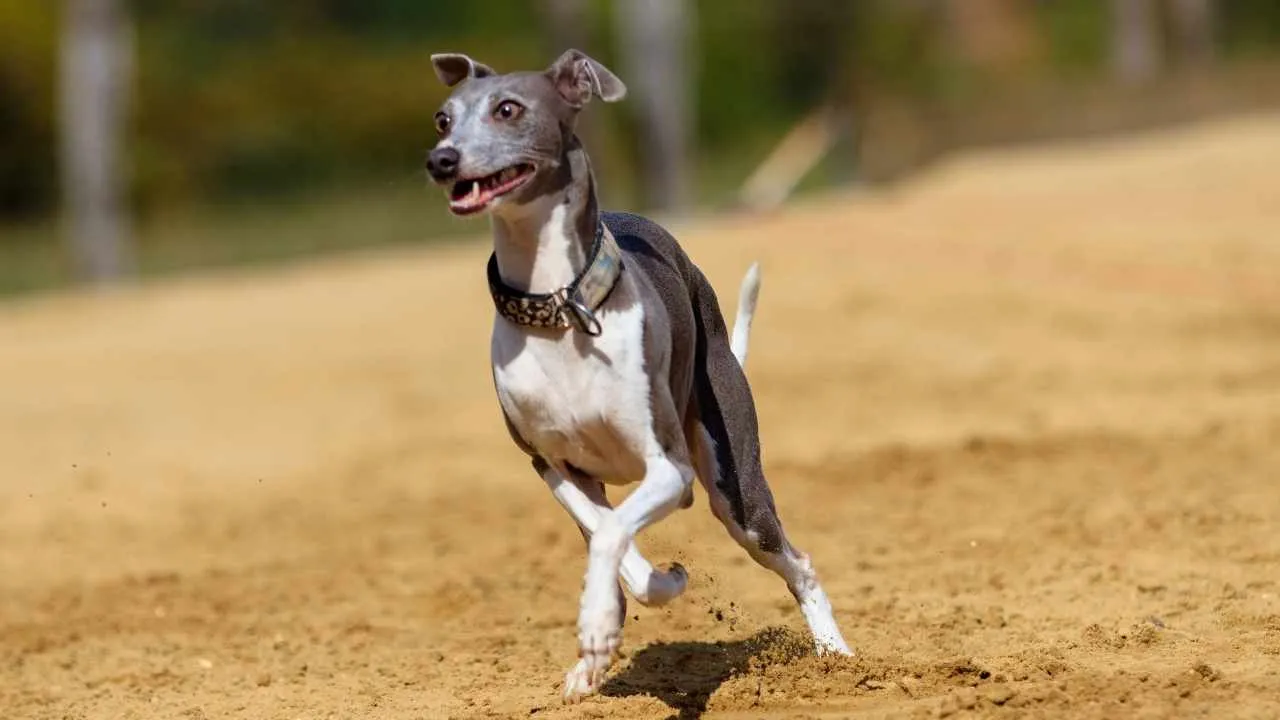
Like other dogs, the Italian greyhound is also prone to dental issues. If you are not serious about your pet’s dental health or treating dental disease, its teeth will fall out. Furthermore, it will be in danger of damaging the kidneys, liver, heart, and joints. Choked bones or hard bones can be dangerous for your hounds.
Risk of Dental Fractures
Cooked bones are very hard, and they can cause dental fractures or broken teeth. Italian Greyhounds have delicate jaws and teeth, so if they chew hard bones, they can have tooth fractures.

Tooth Loss
Italian greyhounds have small jaws and weak roots, so they may lose their teeth. This is more likely to happen if the pet owner doesn’t take proper care of their mouth.
Conclusion
Dental diseases are much more than just stinky breath. These problems can be dangerous for your dog’s health and happiness. The dog breeds mentioned in this blog are more often prone to dental problems. This is because of their facial structure, overcrowded teeth, weak jaws, or their mouth is small.
You can prevent your lovely dogs from these issues if you take precautionary measures. Regular teeth brushing, proper medical checkups, and treatments can be the solution to mouth discomfort. Taking care of your dog means a happy and healthier life for your mate.


